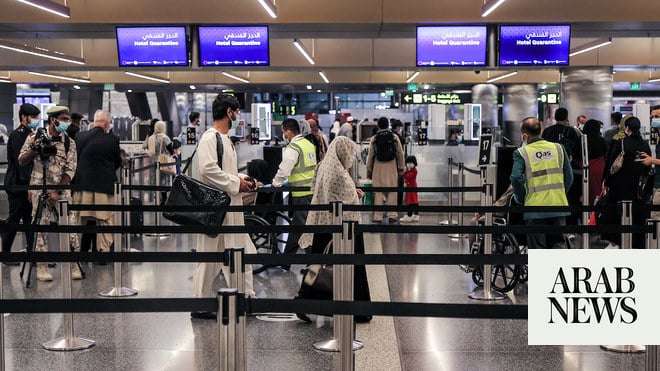
We are all still in this together. But some of us are now falling so much deeper into it than others.
What finally made me cry this week was a picture shared by a Canadian doctor, of four little girls waving through a window. This is the only way she will see her two daughters until it’s over, she wrote. She has sent them to stay with their cousins, to protect them from any infection she could unwittingly bring home from treating the sick and the dying.
In Britain too, some medical staff are making the agonising decision to live apart from pregnant partners, while teachers caring for key workers’ children shove work clothes in the wash at the end of the day and try not to think about what could be lingering on them. Yet still key workers can’t get tested – even when they start showing symptoms – to confirm whether they pose a risk, either to those they help or to their own families. For now, precious laboratory time is reserved for those sick enough to come into hospital.
No wonder some were furious, then, when it emerged that Prince Charles had been tested despite suffering from what’s said to be only a mild case of coronavirus. Buckingham Palace insists it was done for sound clinical reasons, and even if it wasn’t, one princely test makes no practical difference to the ability of hundreds of thousands of key workers to get one.
But this spasm of public anger is a warning sign, nonetheless. It suggests we’re moving into a dangerous new stage of this epidemic, one where heartwarming stories of hope and altruism – small children pogoing manically to Joe Wicks’ free live-streamed PE lessons every morning, almost half a million people volunteering overnight to run errands for the vulnerable – may give way to something darker.
Charles and the Duchess of Cornwall – who left London for the Balmoral estate only hours before the government instructed everyone else not to flee to the country, for fear of spreading infection or overloading rural health services – aren’t alone in hightailing it out of town. While the super-rich seek to ride out the epidemic in hastily rented moated mansions, or on deserted tropical islands, the weekending middle classes have quietly decamped to second homes in Devon or Norfolk or Cumbria.
Houses that normally sit shuttered and forlorn until Easter started opening up again the minute the schools shut – and so many people have been trying to book hideaway cottages on remote Scottish islands that ferry crossings are being restricted. Tiny communities with no cases of their own are understandably afraid of what wealthy urban refugees may bring with them, and fear curdles all too easily into resentment.
But the age-old divide between town and country isn’t the only one at risk of widening. The chancellor, Rishi Sunak, today moved a long way to bridging an emerging gap between the conventionally employed (whose salaries will be part-guaranteed by the state if their jobs are frozen) and the anxiously self-employed, who are now promised a similarly generous lifeline. The latter may have to wait until early June for the money, with the universal credit system buckling under the strain of new claims, however, and isn’t for the highest earners; meanwhile, Sunak hinted the quid pro quo could be reform of tax perks for the self-employed after we emerge from this crisis.
The safety net knitted last week at breakneck speed, meanwhile, is already starting to fray at the edges. Renters worry that their three-month reprieve from eviction might not be as watertight as it looked; older people, told they can stay in and simply order food online, are being left with little choice but to venture out when supermarket delivery slots are booked solid for weeks.
So far, this virus is mainly exposing divisions that we already knew existed. We hardly needed a virus to tell us that the royals are privileged, work is precarious for many, and some families have resources others don’t – whether that’s a cottage by the sea, a back garden to play in, or the skills to teach their own children. Kids whose parents are now raiding the internet for kitchen science experiments will lose less ground academically over this long summer than those whose parents struggle with basic maths themselves – widening attainment gaps that were stubborn enough before.
But as time goes on, this virus may create unexpected new divides too. We desperately need mass antibody testing, said to be only weeks away, to establish who has already had the virus and might now be immune, on top of the existing tests showing who has it now. Reliable testing would let key workers go back to the frontline – or in some cases back home – and others return to the kind of non-essential jobs that keep an economy ticking over.
But testing could also turn us overnight into a society of had-its and haven’t-yets: the former free to roam the outside world again; and the latter still stuck indoors, worrying about their jobs. We can overcome this divide, like any divide, given far-sighted political leadership and individual generosity, but only if we see it coming.
It may seem churlish to dwell on what divides us rather than what we are discovering we have in common. But the lesson of an epidemic that has seen doctors raiding DIY stores for protective masks, and children separated from their mothers by cold hard glass, is that it pays to be one step ahead, not running to catch up; that where we are now is not necessarily where we will be tomorrow. A crisis that has so far brought us together may soon, if we’re not careful, begin to push us apart.












